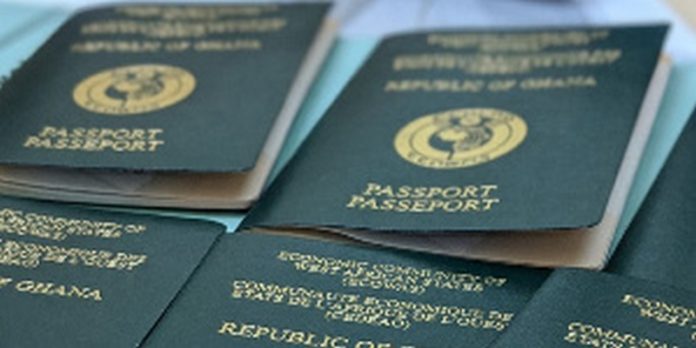Deputy Minister for Foreign Affairs and Regional Integration, Kwaku Ampratwum-Sarpong, has announced that chip-embedded passports will be introduced in Ghana within the next six months.
The Minister noted that the new passport system is in line with a directive from the International Civil Aviation Organization (ICAO) in Canada.
In an interview on JoyNews on Wednesday, April 3, Mr Ampratwum-Sarpong stated that despite the introduction of the new chip-embedded passports, the current biometric passports will remain valid for some time.
“When we bring in the chip embedded, both passports can be used for a period of about a minimum of one year or more. So still you have the biometric, you can use it until a year and half or about two years’ time. We are yet to decide on it”he said.
The Deputy Minister also stated that the new chip-embedded passports will not come with extra cost.
“It will all stay the same. At least that 100 extra will be able to take care of the extra cost in introducing the chip embedded. The chip embedded cost more but even if we introduce it, we will still be able to charge the same GH₵500 and be able to operate without too much challenges or difficulties.”
Mr Ampratwum-Sarpong noted that the current passport fees in Ghana are among the lowest in the West African sub-region and that increasing the fees will help to align them with the cost of passport issuance in neighbouring countries.
“Benin is charging $50 for a passport, Burkina Faso charges $80 which is about GH₵ 960, Cameroon charges $180 that is about GH₵ 2,160, Ivory Coast charges $123, which is about GH₵ 1,500, Gambia charges 50%, Guinea charges $57. Guinea Bissau charges $65, Mali $91, Nigeria $54, Sierra Leone $100, Togo $50, Liberia $40 lowest, Ghana $7 or $8,” he said.
He emphasized that Ghana’s passport fees are significantly lower than that of Liberia, which is currently reviewing its fees and considering an increase.
The Deputy Foreign Affairs Minister added that Ghanaians may be unhappy with the increase in passport fees, but it is necessary.
“The bottom line is we want to increase and improve service delivery. We are not happy with the level of service we are providing. We have to be very honest about it,” he said.
ALSO READ:

